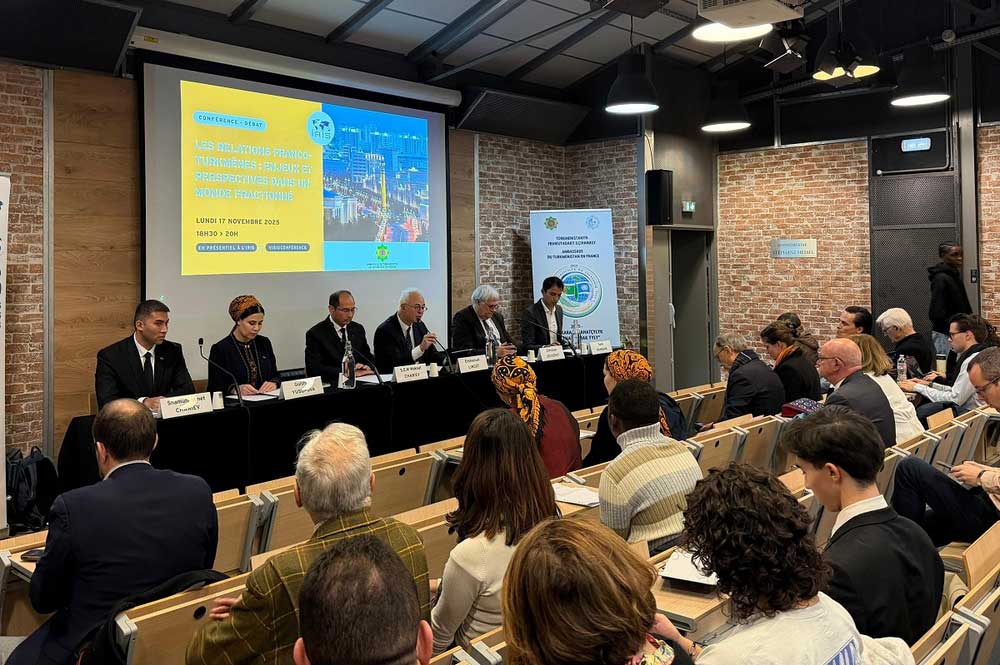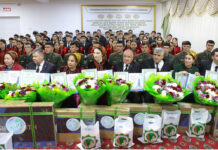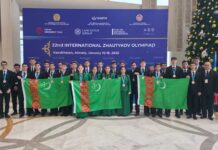At the conference “Turkmen-French Relations: Challenges and Prospects in the Modern World” in Paris, Gulshat Yusupova, Rector of the Institute of International Relations of the Ministry of Foreign Affairs of Turkmenistan, presented initiatives to develop academic cooperation.
A key proposal was the creation of joint master’s and doctoral programs in green energy, water management, and diplomatic studies with leading French universities, including Paris II Panthéon-Assas, the Sorbonne, and the Institute of Political Studies (Sciences Po).
This proposal underscores Turkmenistan’s strategic vision: neutrality is not only a foreign policy doctrine but also an intellectual concept that creates strong bridges for innovation and global dialogue.
Rector Yusupova emphasized that for Turkmenistan, the legal status of neutrality is not simply a foreign policy choice, but the foundation of its entire national philosophy and identity. She noted the historical symbolism of holding the conference in France, a country that played a significant role in the formation of humanistic and legal thought.
Gulshat Yusupova advanced the key thesis: “Peace begins not with the signing of treaties, but with education, mutual respect, and understanding.”
“If diplomacy is the language of states, then science is the language of progress, a language understandable to all without translation,” she stated.
In this context, neutrality is viewed as an intellectual stance based on the pursuit of objectivity, balance, and respect for diverse viewpoints. The Institute of International Relations (IIR) of the Ministry of Foreign Affairs of Turkmenistan plays a vital role in this process, training a new generation of diplomats capable of engaging in intercultural dialogue and advocating for national interests while simultaneously building bridges of cooperation.
The academic partnership with France began in 1994, during the first visit of President François Mitterrand, when an agreement on cooperation in language teaching was signed. Today, French is taught in more than 20 secondary schools and leading universities in Turkmenistan, reaching approximately 19,000 students.
Particular emphasis was placed on joint research projects in sustainable development, which reflect the two countries’ shared priorities: methane emissions monitoring; development of renewable energy sources, including hydrogen technologies; sustainable urban planning; and rational water use.
Concluding her speech, Rector Yusupova outlined specific practical proposals for deepening strategic cooperation:
Joint double degree programs. The launch of IIR master’s and doctoral programs with leading French universities, such as Paris II Panthéon-Assas, the Sorbonne, and the Institute of Political Studies. These programs will focus on international law, green energy, water management, and diplomatic studies.
Strengthening academic mobility. Organizing annual Franco-Turkmen summer schools on diplomacy and international relations, as well as expanding internship programs for students and faculty.
Thus, Turkmenistan proposes viewing neutrality as an invitation to cooperation, where the academic sphere becomes a source of sustainable trust and a strong partnership between Ashgabat and Paris.









